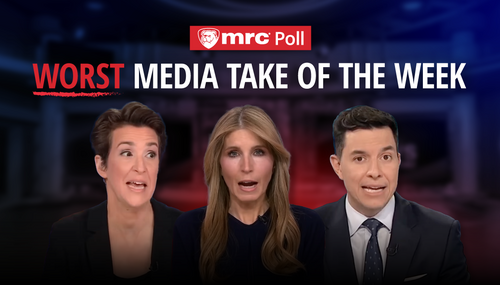Employing a variant of the old surgeon's joke — "The operation was a success, but the patient died" — White House Press Secretary Josh Earnest, on friendly ground on MSNBC this morning, essentially told viewers that the administration still considers Yemen a success, even as its government is on the fast track to being forced into indefinite exile.
Earnest told the Morning Joe show's Mika Brzezinski and the assembled panel that "U.S. policy should not be graded against the success or the stability of the Yemeni government" — although, just for starters, Yemen's President has fled, while the Los Angeles Times is reporting that, because of the Yemeni government's instability, Iran has obtained a treasure trove of U.S. intelligence.
Transcript, wherein the administration-friendly Brzezinski seems to almost beg Earnest to back away from the administration's previous "success" claims, and is rebuffed (bolds are mine):
MIKA BRZEZINSKI, MSNBC: Is Yemen still a success story? Can you say that?
JOSH EARNEST, WHITE HOUSE SPOKESMAN: Yemen has for years been a chaotic situation.
BRZEZINSKI: But is it a success story?
EARNEST: it is a, it is a country that continues to be very dangerous, because they do not have the same kind of government structures in place that allow for a country to function. And what we know, and this has happened in the past and we know that it's happening now, there are certain extremist groups who have designs on attacking the West, that try to take advantage of this chaos, that try to insert themselves —
MIKA BRZEZINSKI, MSNBC: Clearly that's what's happened. So should we dial back on the words that it is a success story, when you have the president fleeing on a boat?
JOSH EARNEST, WHITE HOUSE SPOKESMAN: Mmm. Hmm. You need to separate out two things here. The measure of U.S. policy should not be graded against the success or the stability of the Yemeni government, that's a separate enterprise. The goal of U.S. policy towards Yemen has never been to try to build a Jeffersonian democracy there. (Straw man argument alert. — Ed.) The goal of U.S. policy in Yemen is to make sure that Yemen cannot be a safe haven that extremists can use to attack the West and to attack the United States.
And that involves trying to build up the capacity of the government to help us in this fight. And there is no doubt we would prefer a situation where there is a stable government, where there is a place where U.S. personnel could operate inside of Yemen, could coordinate directly with Yemeni security forces to take the fight to these extremists. But the fact is, even though U.S. personnel is no longer in Yemen, the United States continues to have the capacity and resources and reach to be able to take strikes when necessary against estremists that are opearting —
FEMALE PANELIST "CHRIS": How Josh? How, when you have the embasssy closed, the Americans have left, you have the parliament that has been dissolved, you have the president fleeing on a boat, maybe towards Djibouti, you had so many less possibilities for intelligence on the ground, how can you say that we are still in a counterterror situation? And the opening that's created for AQAP in this chaotic situation?
EARNEST: Again Chris, we would much rather be in a situation where there is a stable central government that could actively support our ongoing efforts, and in a way that would allow —
"CHRIS": But give the situation that you have now there, Josh, what can the United States do in terms of counterterror strategy in Yemen?
EARNEST: We do continue to be in touch with some elements of the Yemeni government. Obviously, that effort at security cooperation is not as robust and as successful as it otherwise would be if the Yemeni government were stable, but we still continue to have ties that are important to our security. The United States continues to have resources in the broader region that we can use to strike terrorists if necessary. And the President has indicated the commitment to using those resources to keep the American people safe.
The related — yes, Josh, it is related — story at the LA Times tells of the "severe" damage:
Iran-backed rebels loot Yemen files about U.S. spy operations
"Secret files held by Yemeni security forces that contain details of American intelligence operations in the country have been looted by Iran-backed militia leaders, exposing names of confidential informants and plans for U.S.-backed counter-terrorism strikes."
U.S. intelligence officials believe additional files were handed directly to Iranian advisors by Yemeni officials who have sided with the Houthi militias that seized control of Sana, the capital, in September, which led the U.S.-backed president to flee to Aden.
For American intelligence networks in Yemen, the damage has been severe. Until recently, U.S. forces deployed in Yemen had worked closely with President Abdu Rabu Mansour Hadi’s government to track and kill Al Qaeda operatives, and President Obama had hailed Yemen last fall as a model for counter-terrorism operations elsewhere.
But the Yemeni government is no longer there, so it can no longer be the an embodiment of the strategy the U.S. has "successfully pursued," which President Obama touted in September 2014.
Will the press legitimately call Obama on the carpet over his false "success" claim the way they dishonestly roasted George W. Bush over "Mission Accomplised"? I doubt it.
Cross-posted at BizzyBlog.com.




